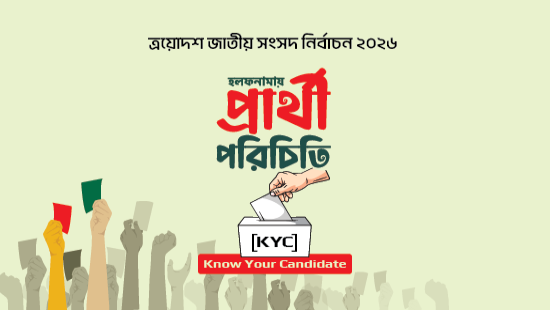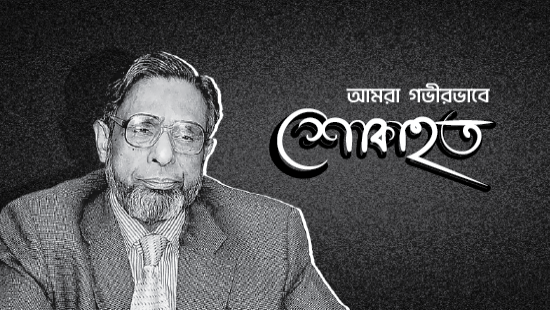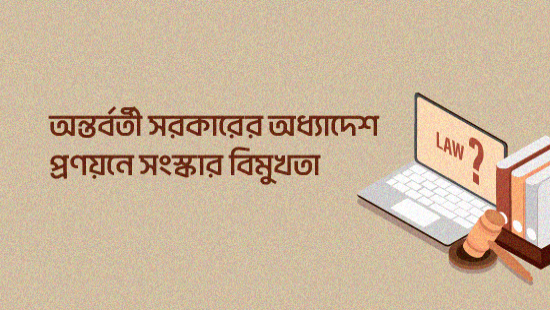Press Release
Dhaka, May 4, 2025: There is no alternative to ensuring the financial security and safety of journalists in achieving press freedom. In particular, without providing salaries and benefits that align with journalists’ standard of living at both national and local levels, and without creating an environment for journalism free from fear and pressure, the realization of a truly free press will remain impossible.
These observations were made by expert panelists at a day-long program held today at the Transparency International Bangladesh (TIB) Dhaka Office to mark World Press Freedom Day. The event, titled “Brave New Bangladesh: Reform Roadmap for Press Freedom”, was jointly organized by UNESCO Dhaka Office, the Embassy of Sweden in Dhaka, and TIB. This year’s celebration featured a special inauguration session, followed by an interactive session to provide a platform to reflect deeply on what is needed to strengthen safety practices, foster a free, independent, professional, and diverse media environment, and build the capacity of media organizations. Md. Mahfuj Alam, Adviser to the Ministry of Information and Broadcasting, attended the event as the Chief Guest, while Mr. Kamal Ahmed, Chief of the Media Reform Commission, delivered the keynote speech. Dr. Susan Vize, Head of Office and UNESCO Representative to Bangladesh, and H.E. Nicolas Weeks, Ambassador of Sweden to Bangladesh, attended as Guests of Honor. The session was moderated by Dr. Iftekharuzzaman, Executive Director of TIB. Among others, the panel discussion featured Rezwanul Haque Raza, Chairman of Broadcast Journalist Center (BJC); Sheikh Sabiha Alam, Bureau Chief of AFP (Dhaka); and A.K. Azad, President of the Newspaper Owners’ Association of Bangladesh (NOAB) and Managing Director of Times Media Ltd.
In the inaugural session, H.E. Nicolas Weeks, Ambassador of Sweden in Bangladesh, highlighted, “Media freedom includes equality within the media itself. As it stands, less than 10% of journalists in Bangladesh are women. This must be reversed, and newsrooms need to become attractive workplaces also for women Journalists are not just reporters of events – they are the defenders of truth, accountability, and the voice of the voiceless. Every time a journalist is silenced, it is not just their voice that is lost – it is ours too.”
Dr. Susan Vize, Head of Office and UNESCO representative to Bangladesh, delivered the opening remarks, stating “This is the opportunity to address some of the issues and prepare for a future with an independent and pluralistic media that allows journalists to inform, educate, and empower societies without fear.”
Kamal Ahmed, Chief of the Media Reform Commission, emphasized that independent journalism requires an environment free from fear, financial insecurity, and political interference. He called for structural reforms, including the enactment of a Journalist Protection Act, formation of a Media Commission, adoption of a National Broadcasting Policy, and the creation of a National Broadcasting Authority by merging BTV, Betar, and BSS. A. K. Azad, President of Newspaper Owners Association (NOAB) and Managing Director of Times Media Ltd, criticized the Press Council for acting under government influence, leaving journalists unsupported despite serious risks. He expressed doubt about the next government’s willingness to reform the struggling media sector and warned that without prompt action, the Media Reform Commission’s recommendations may remain unimplemented. Sheikh Sabiha Alam, Bureau Chief, AFP (Dhaka) stated that since August 5, the media has faced unprecedented criticism. She highlighted that journalism has always been challenging and stressed the need for true media freedom, including creating a supportive environment for women in the field. She emphasized the importance of ensuring journalists' safety and financial security, and said that media owners who cannot afford fair wages should not run outlets, as journalism is not a small-scale business. Rezwanul Haque Raza, Chairman of Broadcast Journalist Center (BJC) highlighted that the recent dismissal of three journalists reveals the challenges faced by Bangladesh's media. He warned that without ensuring journalists' financial and social security, independent journalism would be at risk. He questioned the progress of press freedom, citing widespread lawsuits, cancelled accreditation, and arbitrary layoffs as ongoing issues that remain unresolved. Veteran journalists, journalism educators, students, and advocates for journalists' rights participated in the discussion, emphasizing that without ensuring financial and personal safety and a harassment-free environment, the commitment to a free media will remain just words on paper.
Speaking as the Chief Guest, Md. Mahfuj Alam, Adviser to the Ministry of Information and Broadcasting, stated, "Just as all institutions are held accountable, those involved in media policymaking must also be subject to accountability. We do not want to silence anyone. The media must be given the opportunity to raise questions. However, it is necessary to examine whether these questions are for accountability or driven by political motives." Referring to the issue of lawsuits against journalists, he mentioned that the government is working on it, adding, "Many centers of power have been created, and the practice of filing lawsuits for business continues. Until reforms are ensured, this will persist. If those who come to power later lack the will to reform, this culture will continue. Therefore, everyone must work together to ensure reforms are implemented quickly. I believe no freedom is unconditional. Journalists must also be accountable to the public."
In response to the remarks of the Information Adviser, TIB Executive Director Dr. Iftekharuzzaman said, “The question here is: what standard of accountability should be applied? Every institution or individual must be held accountable for the responsibilities and actions entrusted to them. The media’s responsibility is to pursue independent and impartial journalism in the public interest. It must be ensured that in the name of accountability, journalists or media outlets are not subjected to harassment for practicing such journalism.” Appreciating the Adviser’s commitment to enacting laws based on the recommendations of the Media Reform Commission, he added, “Even after the fall of authoritarianism, we have seen secrecy in the drafting of various laws, which is unacceptable in a new Bangladesh. In the drafting process of the Journalist Protection Act and other related laws, it is essential to ensure the inclusion of all stakeholders.”
He further stated: "No one is addressing the elephant in the room. This refers to the long-standing practice of state intelligence agencies curbing media freedom under the guise of surveillance, which over time has been normalized. After the student and public uprising, some individuals within these agencies may have changed, but the real question is how much the practices have changed—or will change. To prevent the resurgence of these deeply rooted surveillance tactics, tools, and strategies used to enforce ruling party agendas through media control, meaningful reforms must be implemented. Security and intelligence agencies must be equipped with the necessary capacity and authority to fulfill their official responsibilities—but engaging in activities beyond their mandate and misusing power to control the media is unacceptable. Furthermore, it must be ensured that non-state tools—such as the incident of 'slaughtering a cow'—(used to intimidate the media) do not become part of a new normal.”
Media contact:
|
Nusrat Amin |
Mohammad Tauhidul Islam |







